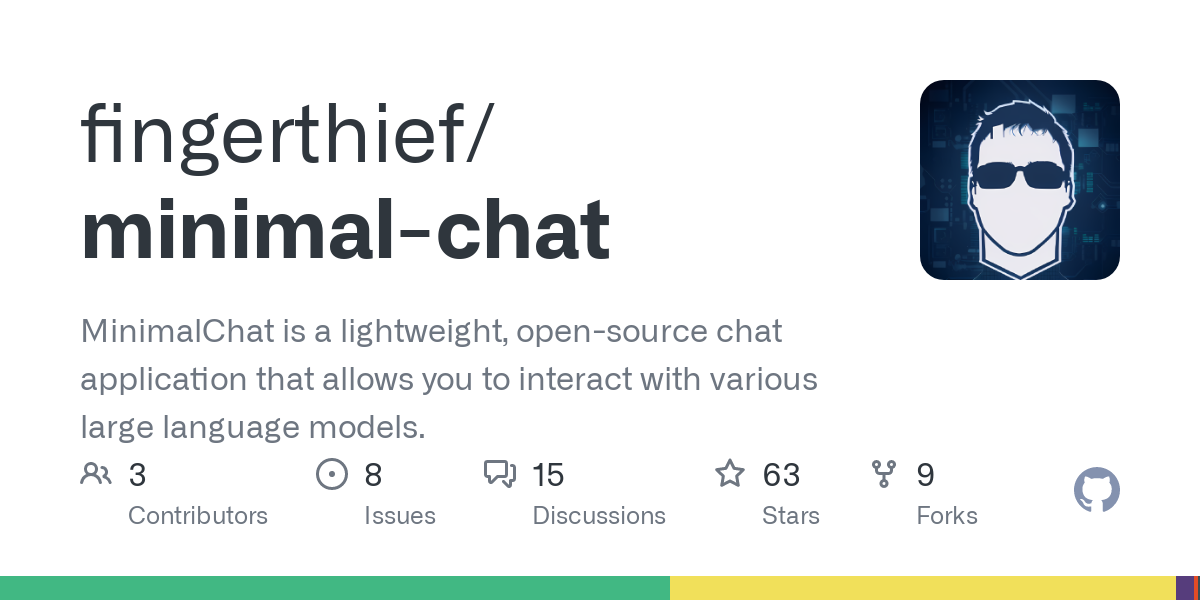- cross-posted to:
- opensource@lemmy.ml
- cross-posted to:
- opensource@lemmy.ml
I’ve been building MinimalChat for a while now, and based on the feedback I’ve received, it’s in a pretty decent place for general use. I figured I’d share it here for anyone who might be interested!
Quick Features Overview:
- Mobile PWA Support: Install the site like a normal app on any device.
- Any OpenAI formatted API support: Works with LM Studio, OpenRouter, etc.
- Local Storage: All data is stored locally in the browser with minimal setup. Just enter a port and go in Docker.
- Experimental Conversational Mode (GPT Models for now)
- Basic File Upload and Storage Support: Files are stored locally in the browser.
- Vision Support with Maintained Context
- Regen/Edit Previous User Messages
- Swap Models Anytime: Maintain conversational context while switching models.
- Set/Save System Prompts: Set the system prompt. Prompts will also be saved to a list so they can be switched between easily.
The idea is to make it essentially foolproof to deploy or set up while being generally full-featured and aesthetically pleasing. No additional databases or servers are needed, everything is contained and managed inside the web app itself locally.
It’s another chat client in a sea of clients but it is unique in its own ways in my opinion. Enjoy! Feedback is always appreciated!
Self Hosting Wiki Section https://github.com/fingerthief/minimal-chat/wiki/Self-Hosting-With-Docker



Yep that’s a pretty good comparison!
I’m curious on what you mean by sourcing training data in an ethical way? I know OpenAI has come under well deserved scrutiny for apparently using content that is hidden behind paywalls without purchasing it themselves in their training data. Which is quite unethical, but aside from that instance I’m interested in hearing some other concerns for my own education.
In general there are definitely loads of models on places like Hugging Face that are fully open source and provide training data sources for many.
I believe for Microsoft’s new Phi 3 models they actually generated synthetic data themselves for training as well which is an interesting approach that seems to yield good results.
In the open source LLM world the new Meta Llama 3 models are the latest and greatest, I haven’t seen any cause for concerns with it yet. Might be worth looking into those!